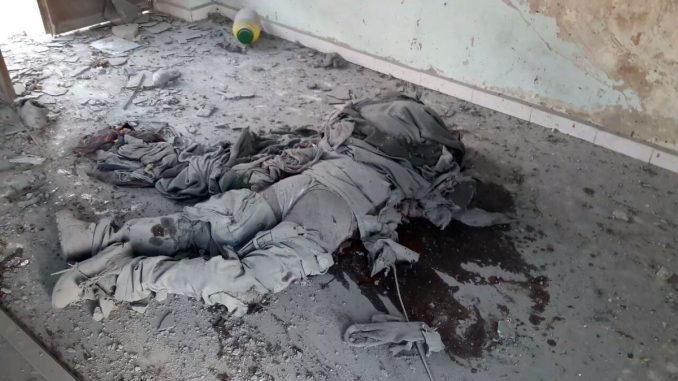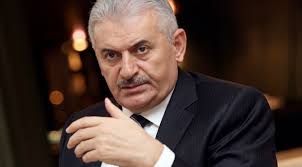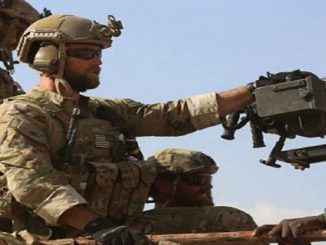
Assad regime and allied forces resumed shelling of rebel-held areas in Wadi Barada near Damascus after a previous truce to allow restoring water to Syria’s capital failed.
Assad regime forces backed by Hezbollah and Shia militias have launched the attack on Wadi Barada valley near Damascus since 22 December, with daily bombing and air raids on the area.
Rebels say the army is seeking to recapture the area, where a major spring provides most of Damascus’s water supplies and which lies on a major supply route from Lebanon to the Syrian capital used by Hezbollah.
The daily clashes are associated with heavy shelling operations by the regime forces using tanks, artillery and mortar shells, and the launching missiles believed to be ground-to-ground, along with airstrikes by warplanes and the barrel bombs of the helicopters, which left tens casualties and injuries
The government assault has coincided with a severe water shortage in Damascus since December 22. Images from the valley’s Media Center indicate its Ain al-Fijeh spring and water processing facility have been destroyed in air strikes.
Rebels say the government bombed the water pumping station at the start of the campaign, while the government says rebels spoiled the water source with diesel fuel, forcing it to cut supplies to the capital.
#وادي_بردى #WadiBarada
صور لنبع #عين_الفيجة الذي يعتبر مصدر مياه الشرب الرئيسي لسكان العاصمة #دمشق قبل و بعد إستهدافه من قبل قوات النظام pic.twitter.com/9CRDAcHKH6— وادي بردى (@w_barada) December 26, 2016
Syria’s army and its allies advanced near Damascus on Friday according to the Syrian Observatory of Human Rights.
The army and the Lebanese Shi’ite Muslim militia Hezbollah gained complete control of the town of Baseimah, taking them close to Ain al-Fijah where the water springs are located, the Observatory said.
Sources said that the regime and rebel forces have reached a deal to allow the repair teams to enter the area in return to halt the military operations and the bombing.
By late Friday afternoon, however, the opposition Wadi Barada Media Center posted pictures of maintenance equipment arriving in the water-rich Barada Valley.
Fuad Abu Hattab, an exiled resident of Barada Valley who is part of the opposition group following the talks, said the agreement would not force anyone to leave the valley nor mean Syrian soldiers taking control of the area. The maintenance equipment would enter the area accompanied by civil police to protect it, he said.
The engineers had entered the facilities at Ain al-Fija in the opposition-held Wadi Barada area by agreement with the rebels, the governor said on Ikhbariya channel on Friday.
The Observatory confirmed that repair crews had reached the Ain al-Fijah spring and that the Syrian flag had been raised in the area. However, this ceasefire failed and the clashes erupted again.
#وادي_بردى
دخول ورشات الكهرباء والمياه قبل قليل من #دير_قانون بإتجاه #عين_الفيجة لبدء عمليات الصيانة مع بدأ تنفيذ وقف إطلاق النار منذ ساعات pic.twitter.com/k8Baozc76t— وادي بردى (@w_barada) January 13, 2017
Clashes resumed again, truce failed
The Britain-based Syrian Observatory for Human Rights (SOHR) said shells hit Al-Reem banquet hall in the village of Deir Qanoun on Sunday.
The banquet hall has been housing hundreds of civilians who have escaped the intensified fighting for Wadi Barada that started on December 22, according to local activists.
The SOHR said besides the fatalities, at least 20 other people were wounded in the attack, some of them critically.
“This is the highest toll there since the beginning of the truce [on December 30],” said Rami Abdel Rahman, SOHR’s head.
A difference source, the activist-operated Wadi Barada Media Centre, said 12 people were killed and more than 20 injured in Sunday’s shelling.
Medical teams have been unable to move around the valley because of the fighting and it is not clear if the dozens of injured are getting any immediate care, according to Fuad Abu Hattab, an exiled local resident and a Wadi Barada Media Centre activist.
the bombing of the Assad regime killed yesterday more than 15 and wounding dozens of civilians in one of the shelters in #WadiBarada#syria pic.twitter.com/IvETUsfax6
— وادي بردى (@w_barada) January 16, 2017
#Massacre in the village of #DeirQanun in #WadiBarada result of artillery & mortar shelling by regime https://t.co/NqiX8jGl5m#Step_News pic.twitter.com/ohF55GBGVW
— Step News Agency EN (@Step_Agency1) January 15, 2017
قصف عنيف من قبل النظام على عين الفيجة | 15 يناير 2017م: https://t.co/qJoygxRxMQ عبر @YouTube
— وادي بردى (@w_barada) January 15, 2017
Sources said that the clashes were resumed after the death of the government official who negotiated a deal to restore water to Damascus.
Ahmed al-Ghadban had been on his way to the main Ain al-Fijah spring with government maintenance teams when he was killed.
Opposition fighters and government officials have traded blame over the killing of the retired army officer, who had assumed his duties on Saturday.
However, Ahrar al-Sham rebel group said Jabhat Fatah al-Sham is behind Ghadban’s death to undermine the truce deal as it refused it. Other sources said Ahrar al-Sham itself may have been behind this to keep the crisis in Wadi Barada as a pressure card against the regime it Astana talks after a few days.
The Syrian crisis began as a peaceful demonstration against the injustice in Syria. Assad regime used to fire power and violence against the civilians and led to armed resistance. 450.000 Syrians lost their lives in the past five years according to UN estimates, and more than 12 million have lost their homes.



